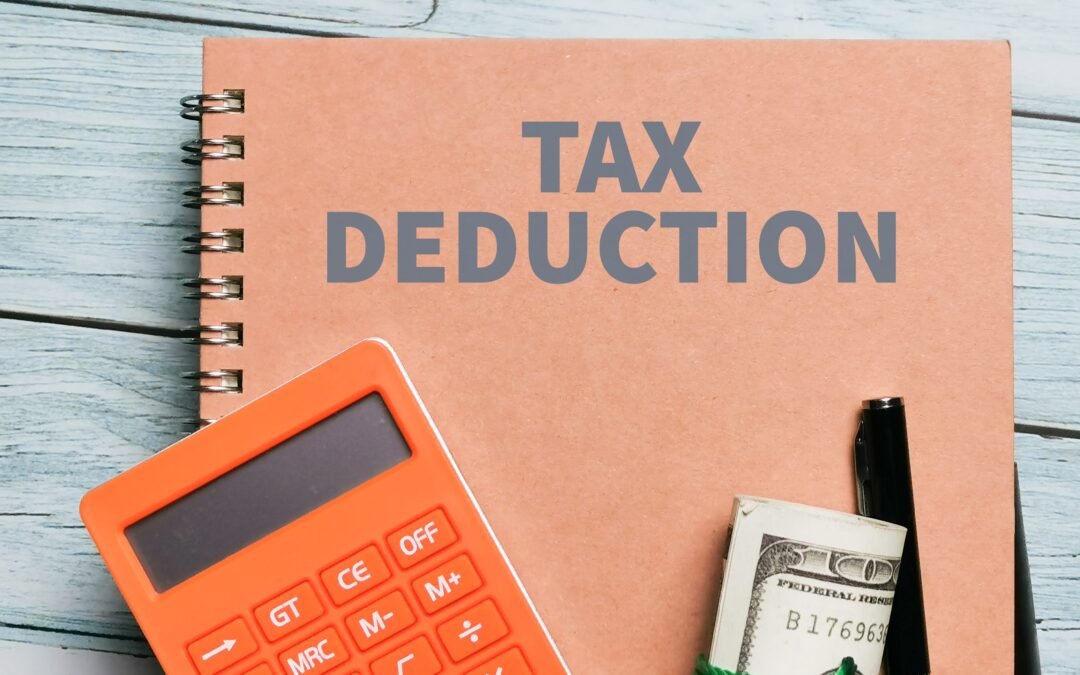
by Abdul Wahab | Oct 15, 2024 | Accounting
As a freelancer, managing your finances efficiently is crucial for success. Choosing the right accounting software can simplify your bookkeeping, save time, and help you stay on top of tax obligations. In this guide, we explore some of the best software tailored for freelancers to help you manage invoicing, expense tracking, and tax preparation with ease.
Key Features to Look for in Accounting Software for Freelancers
When choosing the right freelancer accounting software, it’s important to consider these essential features:
- Invoicing: Generate and send professional invoices to clients quickly.
- Expense Tracking: Categorize and track your business expenses for easier tax preparation.
- Time Tracking: Keep an accurate log of your work hours to ensure you’re billing clients correctly.
- Tax Preparation: Provide helpful tools and reports to make tax filing easier.
- Financial Reporting: Generate financial reports like profit and loss statements and balance sheets to monitor your business performance.
- Integration with Other Tools: Sync with project management, payment processors, and other tools to enhance workflow efficiency.
- Cloud-Based: Access your accounting information anywhere with an internet connection for greater flexibility.
Top Accounting Software Options for Freelancers
Here are some of the best online software options that can simplify financial management for freelancers:
- QuickBooks Self-Employed: A popular choice, QuickBooks Self-Employed is specifically designed for freelancers. It offers mileage tracking, expense categorization, and tax preparation tools, helping you stay organized and compliant.
- Xero: Xero is a cloud-based accounting software that offers a comprehensive set of features such as invoicing, expense tracking, and easy tax filing. It’s a great option for freelancers seeking scalability as their business grows.
- FreshBooks: Known for its intuitive interface, FreshBooks includes features like time tracking, expense management, and seamless payment processing, making it ideal for freelancers who need simplicity and functionality.
- FreeAgent: Particularly popular with freelancers in the UK, FreeAgent provides easy-to-use tools for invoicing, expense tracking, and tax preparation, tailored to the unique needs of small business owners.
- Wave: A free accounting software solution, Wave offers essential features like invoicing and expense tracking, with optional paid plans for advanced tools. This is a great option for freelancers looking for a budget-friendly solution.
How to Choose the Right Accounting Software for Freelancers
When selecting the best freelancer accounting software, consider your specific business needs and budget:
- Start with a free or low-cost plan: If you’re just starting out, tools like Wave or entry-level plans from QuickBooks or FreshBooks can meet your needs. As your business grows, you can easily scale to more advanced features.
- Look for scalability: Choose accounting software that grows with your business. If you’re a freelancer planning to expand your offerings, consider solutions like Xero or FreshBooks that offer advanced options as your business evolves.
- Think about integrations: The best accounting software integrates with other business tools like payment processors, project management software, or CRM systems, streamlining your overall workflow.
Additional Tips for Freelancers Using Accounting Software
- Start Early: Don’t wait for tax season to start using accounting software. Early implementation can help keep your finances organized and stress-free.
- Take Advantage of Training Resources: Many accounting software platforms offer tutorials, webinars, and guides to help you get started quickly.
- Regular Backups: Always back up your financial data regularly to prevent potential data loss.
- Consult with a Professional: If you’re unsure about tax laws or proper bookkeeping practices, it’s wise to consult a tax advisor or accountant.
Conclusion
Choosing the best accounting software for freelancers can help you streamline financial tasks like invoicing, expense tracking, and tax preparation. By using one of the tools mentioned above—such as QuickBooks, Xero, FreshBooks, FreeAgent, or Wave—you’ll save time, reduce stress, and gain better insight into your freelance business’s financial health. Book a free consultation with us right away without any hesitation.
Stay ahead of your financial game with the right software and focus on what you do best—growing your freelance business!

by Abdul Wahab | Oct 12, 2024 | Accounting
For small business owners and freelancers in the UK, maximizing tax deductions can significantly reduce the amount of tax you owe and keep more money within your business. Knowing which expenses you can deduct will help you avoid leaving money on the table. This guide will cover essential tax deductions for UK businesses, freelancers, and self-employed individuals, so you can optimize your tax return.
Why Maximizing Tax Deductions is Important
Tax deductions lower your taxable income, reducing the amount of tax you pay to HM Revenue & Customs (HMRC). Staying informed about allowable deductions can help improve your cash flow and profitability while ensuring compliance with UK tax laws.
1. Home Office Deduction
If you work from home, you can claim a portion of your home expenses as a business expense. This includes costs for utilities, rent, or mortgage interest. You can either claim Simplified Expenses (a flat rate based on hours worked) or the actual expenses method for more accurate claims.
2. Office Equipment and Supplies
Purchases made for business purposes, such as computers, printers, software, and office furniture, are often tax-deductible. These fall under capital allowances, and you can claim the full or partial cost of these items through Annual Investment Allowance (AIA).
3. Vehicle and Mileage Expenses
If you use your vehicle for business purposes, you can deduct vehicle-related costs such as fuel, maintenance, insurance, and even parking fees. The UK allows you to choose between two methods:
- Simplified Mileage Allowance: Claim a flat rate per mile (45p for the first 10,000 miles and 25p after).
- Actual Costs: Deduct a percentage of the actual expenses related to business use.
- Tip: Keep a mileage log or use an app to track business trips.
4. Travel and Accommodation
When travelling for business purposes (conferences, client meetings, etc.), you can deduct expenses for transport, hotel stays, and even meals while travelling. Be cautious, though—personal travel costs are not deductible.
5. Marketing and Advertising Costs
Costs related to promoting your business are tax-deductible. This includes online advertising (Google Ads, social media), print marketing materials (brochures, business cards), and website development.
6. Professional Fees
Payments made to accountants, solicitors, or consultants for professional services are deductible. For instance, if you hire an accountant to file your taxes or seek legal advice for contracts, these fees can reduce your taxable income.
7. Staff Salaries and Benefits
If you employ staff, you can deduct salaries, wages, and employer National Insurance contributions (NICs). You can also deduct the costs of providing employee benefits, such as pensions, health insurance, or bonuses.
8. Insurance Premiums
Insurance policies that protect your business are generally tax-deductible. This includes:
- Professional indemnity insurance
- Public liability insurance
- Employer’s liability insurance
- Tip: Ensure you only claim for business-related insurance policies.
- Learn more: Insurance expenses for businesses
9. Utilities and Rent for Business Premises
If you rent an office or business premises, you can claim deductions for rent and utilities such as electricity, water, and broadband. If you’re working from home, only the business portion of these costs is deductible.
10. Training and Development
Costs incurred for job-related training or professional development are deductible. This includes conferences, courses, and certifications that enhance your business skills or those of your employees.
11. Charitable Contributions
If your business donates to registered charities, those contributions may be deductible. Be sure the charity is registered with HMRC to qualify for the deduction.
12. Bad Debts
If your business extends credit to customers and fails to receive payment, you may be able to claim bad debt relief. This deduction helps offset losses from unpaid invoices.
- Tip: Keep records of invoices and documentation proving that the debt is unlikely to be recovered.
- Learn more: Claiming bad debt relief
13. Subscriptions and Memberships
If your business subscribes to trade publications, industry memberships, or professional associations, these expenses are tax-deductible. Subscriptions related to your business niche can help you stay informed and connected.
Conclusion: Maximize Your Tax Deductions
Maximizing tax deductions is essential for reducing your tax liability and keeping more money in your business. By staying informed about the various deductions allowed by HMRC—from home office expenses to marketing costs—you can make the most of available tax breaks. Make sure to keep detailed records and consider working with a tax professional to ensure you’re claiming all eligible deductions.
Need help optimizing your tax deductions? Contact us to speak with one of our accounting experts and learn how we can help maximize your tax savings.

by Abdul Wahab | Oct 12, 2024 | Accounting
Running a small business requires a delicate balance between creativity and practicality. While your passion might lie in your product or service, a solid financial foundation is equally crucial for long-term success. Accounting, often overlooked, is the backbone of a thriving business, ensuring you track income, expenses, and stay compliant with tax regulations. However, for many small business owners, accounting can feel overwhelming.
To simplify this process and help you maintain financial control, we’ve curated a collection of essential accounting tips:
1. Separate Personal and Business Finances
One of the most common financial pitfalls is intermingling personal and business funds. This can lead to confusion, tax complications, and hinder your ability to accurately track your business’s performance.
- Dedicated Business Accounts: Open a separate bank account and credit card solely for business expenses. This clear separation will simplify your bookkeeping and make it easier to identify business-related transactions.
2. Track Every Expense
Detailed expense tracking is vital for accurate bookkeeping and potential tax deductions.
- Accounting Software: Utilize accounting software like QuickBooks, Xero, or FreeAgent to automatically track expenses.
- Categorization: Organize expenses into relevant categories (e.g., office supplies, travel, meals) for better financial insights and tax preparation.
3. Prioritize Invoicing
Delayed or forgotten invoices can negatively impact your cash flow.
- Prompt Invoicing: Implement a system for timely invoicing to ensure you receive payments promptly.
- Follow-Ups: Chasing unpaid invoices is essential. Consider using invoicing tools to automate reminders and follow-ups.
4. Plan for Taxes
Taxes can be a significant expense for small businesses.
- Tax Savings: Set aside a portion of your income each month to avoid unexpected tax burdens.
- Professional Advice: Consult with a tax advisor to ensure you’re taking advantage of all available deductions and credits.
5. Maintain Organized Records
Accurate and organized records are essential for efficient bookkeeping and tax compliance.
- Digital Storage: Store receipts, invoices, and bank statements digitally for easy access.
- Organization Tools: Utilize tools like Receipt Bank or Expensify to automatically organize your documents.
6. Consider Professional Help
While accounting software can assist, a professional accountant or bookkeeper can provide valuable expertise.
- Compliance: Ensure your business adheres to tax laws and regulations.
- Strategic Advice: Receive guidance on financial planning and growth strategies.
7. Monitor Cash Flow Regularly
Cash flow is the lifeblood of your business.
- Cash Flow Statements: Create regular cash flow statements to understand your income and expenses.
- Anticipate Shortages: Identify potential cash shortages to avoid financial difficulties.
8. Automate Payroll
As your business grows, payroll management can become complex.
- Payroll Software: Use payroll software to automate employee payments, calculate taxes, and file payroll forms.
9. Understand Tax Deductions and Credits
Maximizing tax savings is essential for a healthy bottom line.
- Deductions and Credits: Research and claim eligible deductions and credits to reduce your tax liability.
10. Plan for Growth
Accounting isn’t just about the past; it’s also a tool for future planning.
- Financial Analysis: Regularly review your financial statements to identify growth opportunities.
Conclusion
Accounting might seem complex, but with the right tools and strategies, it can be manageable for small businesses. By following these essential accounting tips—keeping personal and business finances separate, tracking expenses, staying on top of invoicing, and consulting professionals—you can maintain a healthy financial foundation for your business.
Remember, staying organized and being proactive about your finances will save you time, money, and stress in the long run. If you’re feeling overwhelmed, don’t hesitate to reach out to an accountant to help you get your books in order and plan for future success.
Need professional help managing your small business finances? Contact us today to learn how our accounting services can help your business thrive.



Recent Comments